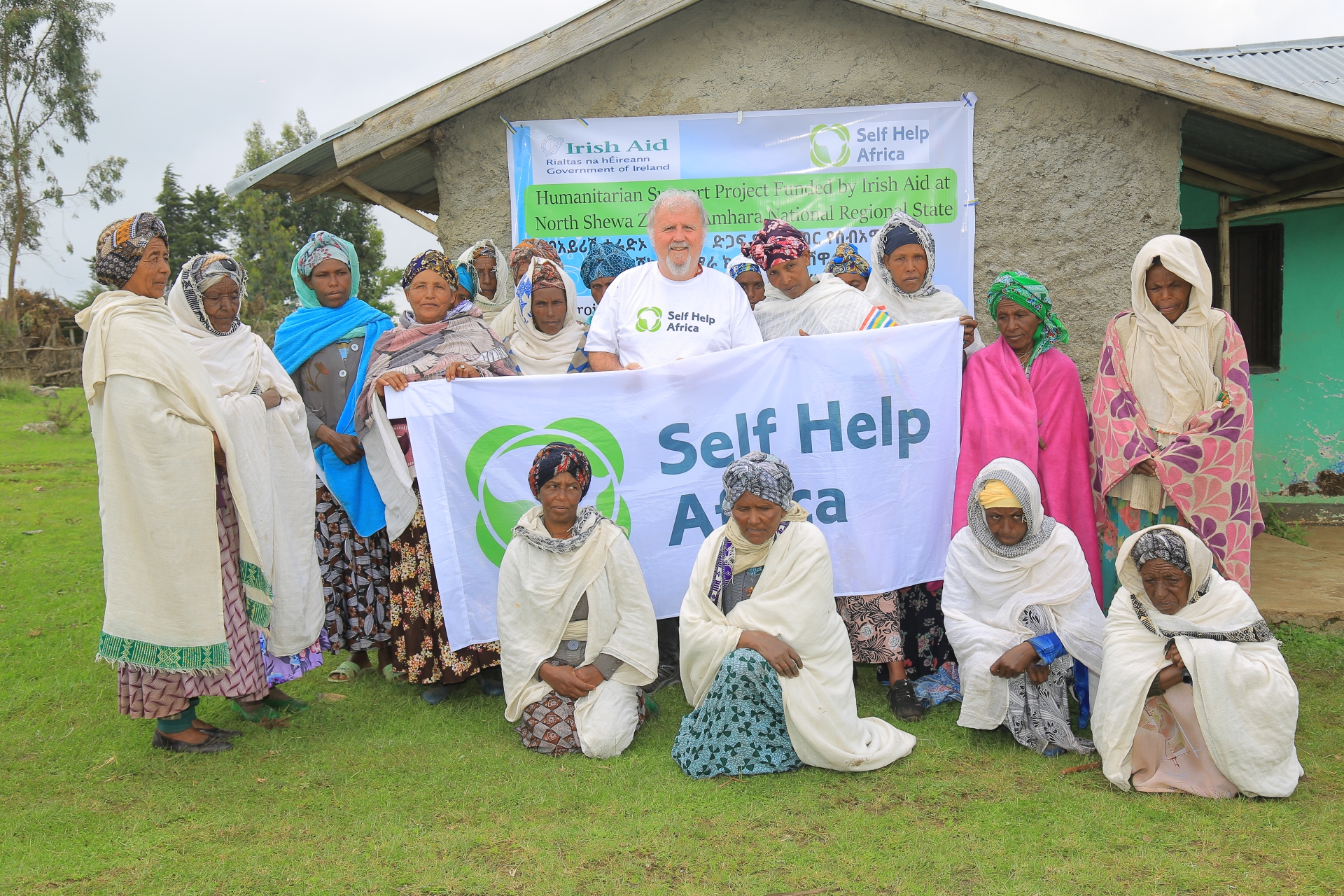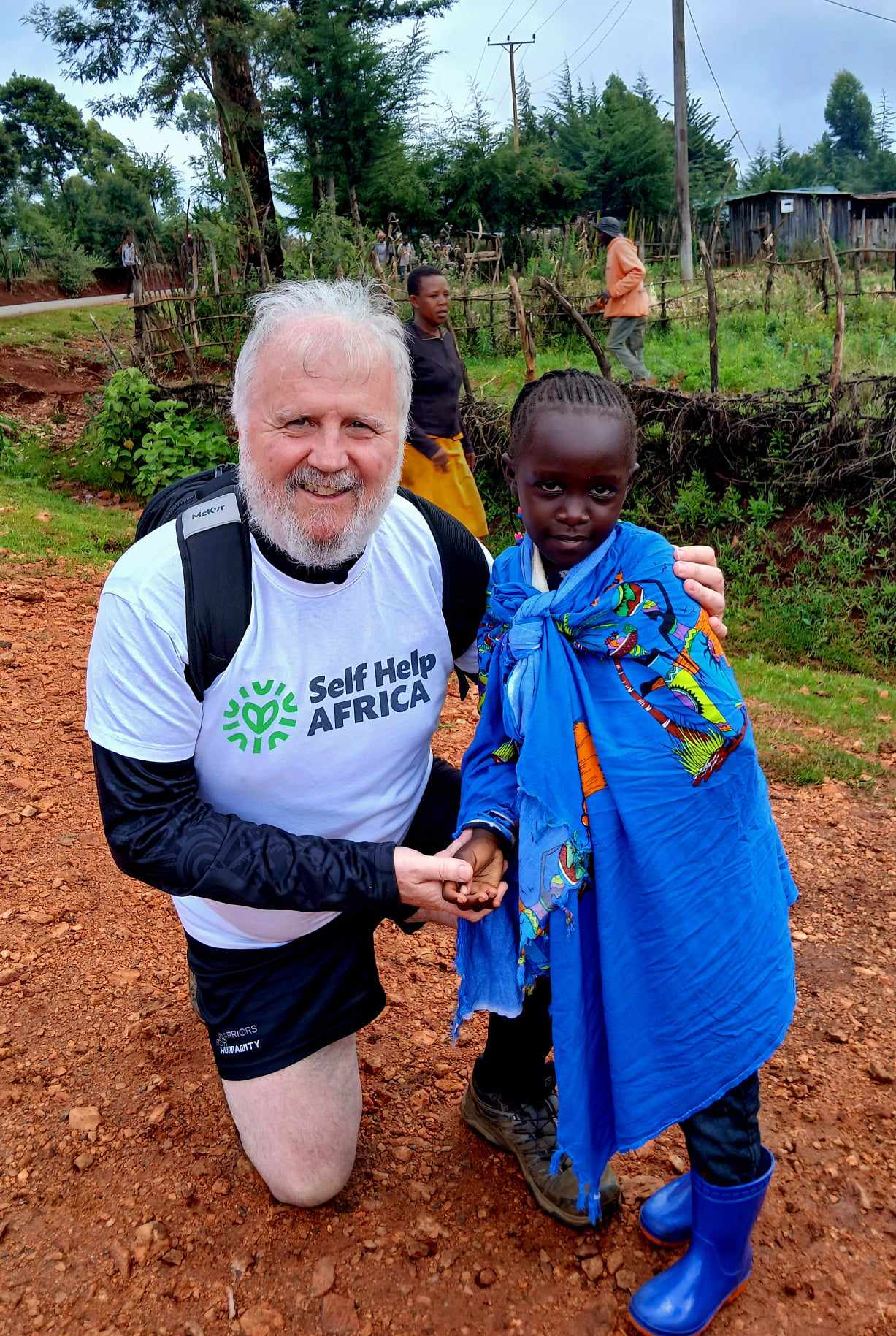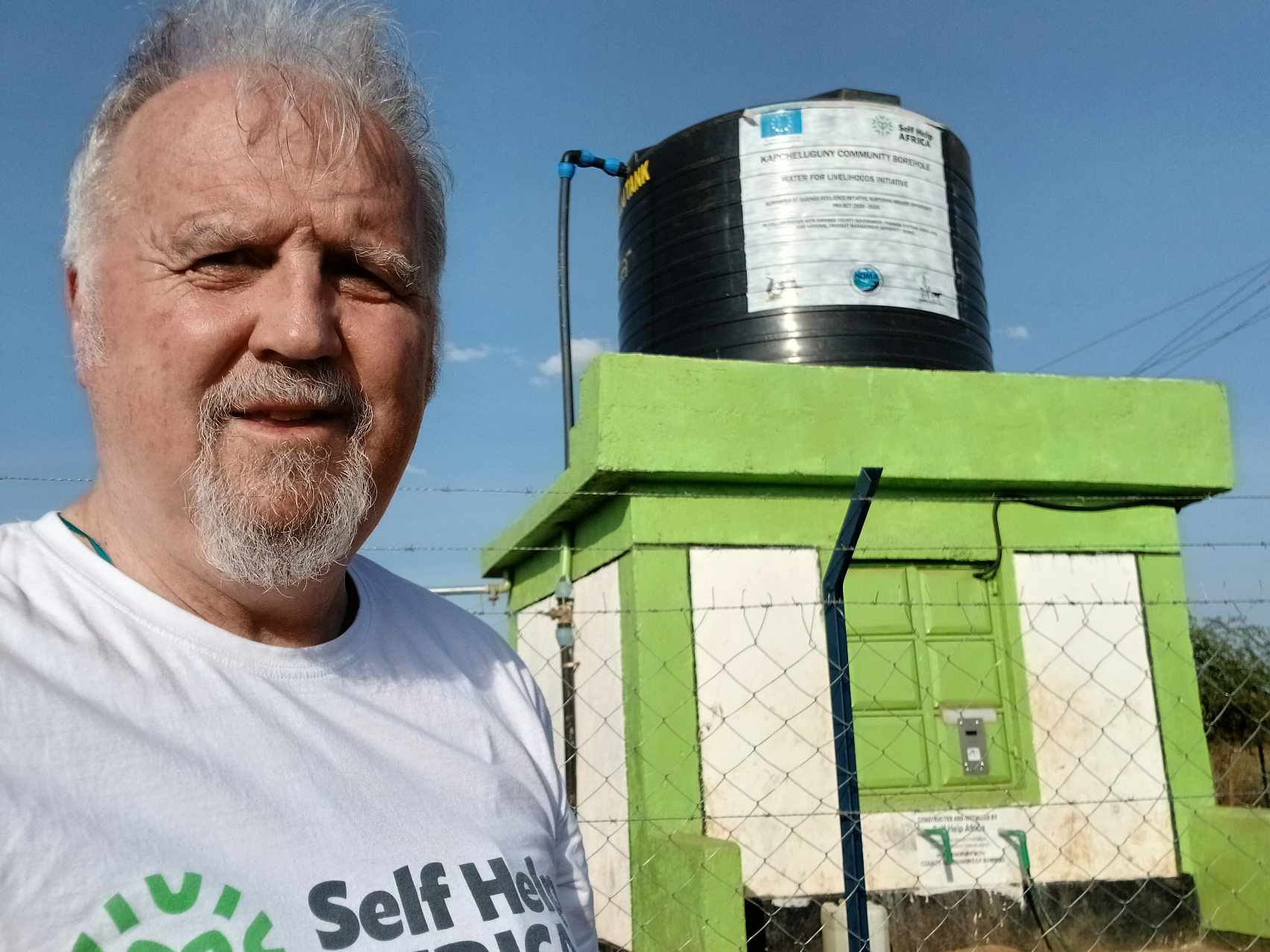
Ronan Scully of Self Help Africa with some village Women Elders in a Massai village in Baringo County in Kenyain Africa recently
Clara's Ronan Scully has worked for Self Help Africa for the past fifteen years
I’VE worked in the overseas aid charity sector for most of my adult life, and over the past four decades I’ve witnessed more than my share of heartbreak and suffering.
Whether that was, early in my career, in the urban slums of India, or more recently with people forced to flee war and conflict and the effects of drought and climate change challenges – most recently in Ethiopia, Kenya and parts of Eastern and Southern Africa – I have seen lives upended – usually as a result of circumstances far outside the control of the people who find themselves living in tents, camps, and very often in countries that are new and strange to them.
Most of my working life, especially the last 15 years with the Irish NGO charity Self Help Africa has focussed my attention on crises that have affected people on the continent of Africa. Many of these crises have centred on the ability – or should I say the inability – of people to be able to put food on the table for their families, from one day to the next.
I am fortunate to have never had to experience what it is really like to be hungry or truly thirsty. But I have spoken with many on my recent trip who have, and do know exactly what hunger and indeed what thirst feels like.
Although Africa has huge untapped potential in the vast areas of unfarmed land that is capable of growing crops, as I write this, there are nearly 300 million people on the continent who know what it is like to be hungry and thirsty. These are people whose children are under-nourished, and who, for periods of the year, survive on the most basic diet, sometimes eating just a few times a week.
It’s no way to live in our world of abundance, yet it is a reality for far too many people and children.
In recent times, the impacts of global warming and climate change have added to the challenge of producing enough food and having a steady needy supply of clean drinking water. The hill that these people face seems to be as steep as ever; the problem is as complex and intractable as it has ever been.

This being the case, I find the recent news coverage and reports of decisions by several key donors to cut or suspend international aid heart breaking and soul destroying.
A lifetime working in the charity sector has shown me that for all the challenges – natural or man-made, that confront the most vulnerable – the vast majority of the people who devote their lives to work in overseas aid do so for the noblest motives. And there are hundreds of millions of people across the globe who are in dire need of that assistance at this very present moment.
Unfortunately, global media attention doesn’t always focus its attention on the multitude of micro-crises that have affected people in Africa. In recent years and in countries where I work, these have included droughts and failures of seasonal rains in parts of Zambia, Ethiopia and Kenya, extreme weather events including cyclones and large scale flooding in Malawi, Kenya and Mozambique, record breaking heat waves in parts of West Africa and Southern Africa, large scale refugee migrations into countries such as Uganda, Zambia and Malawi, and conflict and political instability in Ethiopia, Sudan and Somalia. I witnessed firsthand recently the devastating effects of drought, conflict, climate change, and crop failures. Millions of people are in dire need. As I write this, some of the worst humanitarian crises in a century are unfolding in some of the poorest regions of the world. Climate change, conflict, and economic instability have left 61 million people in desperate need of food, with over 21 million children acutely malnourished in Eastern Africa and Southern Africa alone.
Many of these never made the pages of our newspapers or were ever talked about on the airwaves.

Indeed, a recent international report found that of the 5.6 million online articles published on humanitarian crises in 2024, nearly half — 2.7 million of these focused on the tragic events that have been unfolding in Gaza. There is no disputing the terrible events in the Middle East, but unfortunately for Africa, out of sight can sometimes translate to out of mind.
When we think of overseas aid, we often envision emergency food relief, healthcare services, and clean water projects. However, much of this vital work depends on funding. For Self Help Africa, the recent cuts to aid budgets have had a direct and immediate impact on our work. Projects in Kenya, Malawi, Zambia and Nigeria have been stopped, and jobs have been lost. These projects supported job creation, market access for women and rural youth, access to carbon finance, access to healthcare especially those affected by HIV and the improvement of water and sanitation services.
Thankfully, the Irish government has not followed suit, and have held firm in their commitment to achieving the targets they have set to support the development needs of the furthest behind and the poorest of the poor.
The latest reports from the United Nations classify ‘16 hunger hotspots’ where acute food insecurity is expected to deteriorate further into 2025. If we are to prevent malnourishment of children and the starvation and the thirst of people, assistance will be needed.
But alongside the imperative to provide short-term aid, longer term development assistance – as is delivered by Self Help Africa across its agricultural work – is needed if people are to be able to put food on the table, access clean drinking water, adapt to and build the resilience that is needed to climate change, and provide a decent and stable environment in which the next generations can grow, and flourish.

I travelled to Kenya just last month with some friends and supporters of Self Help Africa from the West of Ireland, and had the opportunity to see some of what has been achieved as a result of our efforts to build the resilience and economic capacity of people to build a better life for themselves. And we saw how this work is, and has been making a lasting difference.
Children are being sent to school and are staying in school longer because their families are able to afford to send them. Farms are producing a broader range of food and therefore households are eating better diets, and as a result, malnourishment levels have fallen. In simplest terms, small farming households – who are the majority of people - are putting in place the basic building blocks of a better life, including healthier livestock, new crops and more effective ways of farming in this challenging environment. As a result, more householders were accumulating small scale savings and were investing in their families futures.
Your support allows Self Help Africa to continue its vital work in agriculture, health, education, water and sanitation. One example is Pamela, a 25-year-old mother in Kenya who previously walked 11 kilometers daily to fetch unsafe water. Thanks to a climate-smart borehole installed by Self Help Africa, Pamela and over 500 other households now have access to clean water. In Baringo County alone, over 68,000 people have benefited from similar projects. Agriculture has the potential to end hunger in Africa if properly invested in. It contributes up to 42% of GDP in sub-Saharan Africa and is 2.5 times more effective at reducing poverty than other sectors. Self Help Africa works with farmers to improve yields, access markets, and build resilience. However, recent funding cuts threaten to undo years of progress.
Together, we can fight hunger, poverty, and injustice. Let’s not look away. Let’s act now because no food = no future, no water = no future, no education = no future, no healthcare = no future, no funding = no future! If you can spare any amount, no matter how small, or are in a position to organise a fundraiser to support Self Help Africa’s work in 14 countries in Africa, it all adds up to make a huge difference to the lives of people and children in many parts of Africa because no Self Help Africa = no future for a lot of families. You can find out more about our work or make a donation, by visiting www.selfhelpafrica.org or simply send whatever you can to Self Help Africa, Westside Resource Centre, Seamus Quirke Road, Westside, Galway.
Subscribe or register today to discover more from DonegalLive.ie
Buy the e-paper of the Donegal Democrat, Donegal People's Press, Donegal Post and Inish Times here for instant access to Donegal's premier news titles.
Keep up with the latest news from Donegal with our daily newsletter featuring the most important stories of the day delivered to your inbox every evening at 5pm.